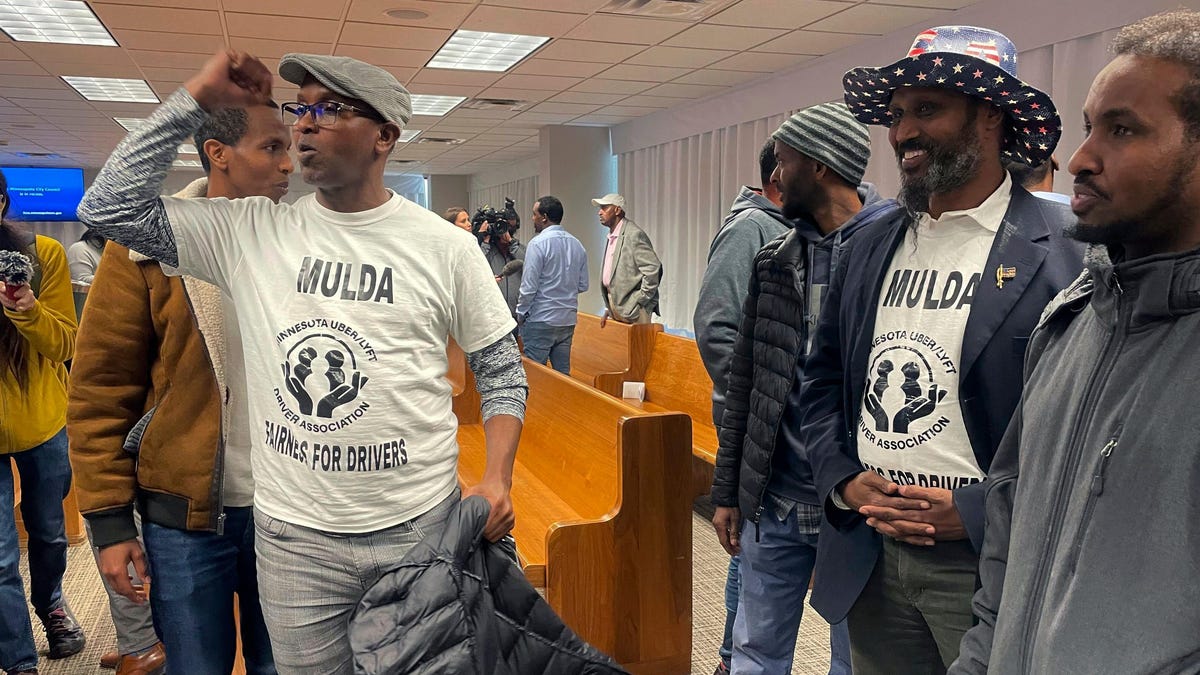
Uber and Lyft have vowed to stop offering service in Minneapolis starting May 1 after the city council voted 10-3 on Thursday to override the mayor’s veto on a minimum wage for drivers. Minnesota’s Democratic governor, Tim Walz, vetoed a similar pay floor for rideshare drivers statewide last year.
Uber said it would leave the entire metropolitan area of Minneapolis-St. Paul, home to about 3.7 million people, though stressed the state has been working on a resolution. Uber will also stop servicing the largest airport in the area, MSP, despite the fact that it technically resides outside Minneapolis in an unorganized territory that also holds the state’s first military fort.
Advertisement
“We are disappointed the Council chose to ignore the data and kick Uber out of the Twin Cities, putting 10,000 people out of work and leaving many stranded,” Uber told Gizmodo in a statement Friday. “But we know that by working together with all stakeholders—drivers, riders and state leaders—we can achieve comprehensive statewide legislation that guarantees drivers a fair minimum wage, protects their independence and keeps rideshare affordable.”
Advertisement
Much of the fight in Minneapolis comes down to questions about how to calculate the minimum wage in order to give rideshare drivers the same $15.57 per hour wage mandated for other workers in the city. Since drivers are only paid for the time they’re driving passengers, and they’re on the hook to pay for their own expenses like gas and insurance, figuring out average driver wages over time can be tricky.
Advertisement
The City Council used a calculation of $1.40 per mile and $0.51 per minute, though local independent news outlet the Minnesota Reformer points out that’s different from an analysis published by the state in 2022 which estimates drivers in Minneapolis would need to earn $0.89 per mile and $0.49 per minute to achieve the minimum wage.
Minneapolis has a large Somali-American community, which mobilized support for the wage hike for drivers in the Twin Cities through the Minneapolis Uber/Lyft Drivers Association (MULDA).
Advertisement
“Today’s vote showed Uber and Lyft and the mayor that the Minneapolis city council will not allow the East African community or any other community to be exploited by cheap labor,” Jamal Osman, a Minneapolis council member, told local TV station WCCO.
The Democratic mayor of Minneapolis, Jacob Frey, had vetoed the wage hike and told local public radio station MPR that “getting a raise doesn’t do a whole lot of good if you lose your job entirely.”
Advertisement
While Uber is the largest rideshare company in the U.S., rival Lyft is also leaving the market. Between the two companies, there are an estimated 10,000 drivers in total.
“This deeply-flawed bill has been jammed through despite major concerns being raised by the community. We support a minimum earning standard for drivers, but this ordinance would make rides unaffordable for the majority of Minneapolis residents,” a spokesperson for Lyft told Gizmodo in a statement on Friday.
Advertisement
“This drastic drop in rides means the thousands of drivers who rely on Lyft for earnings would ultimately make less, creating an unsustainable situation for our customers,” the statement continued, adding the company hopes to return to Minneapolis “as soon as possible.”
Services Marketplace – Listings, Bookings & Reviews